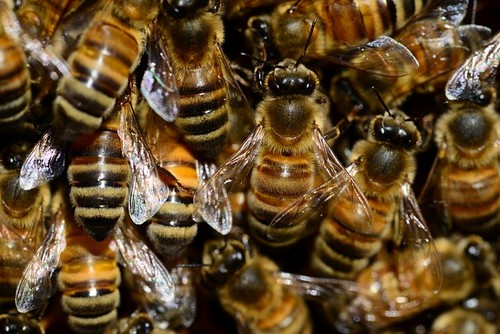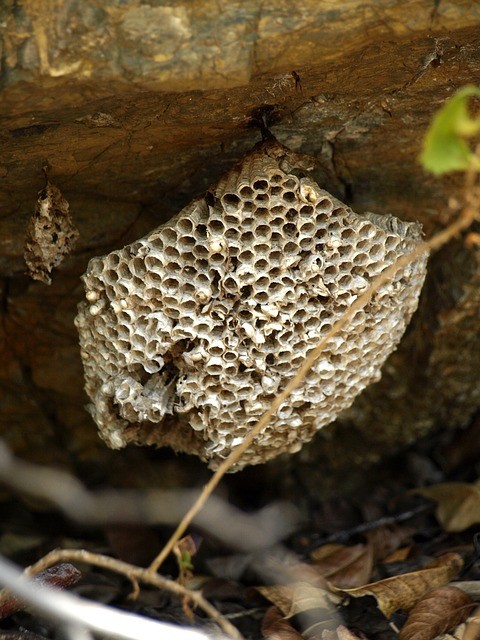The Importance of Ethical Bee Control
Bees are an important and essential part of our ecosystem that help the growth of fruits, vegetables, nuts and seeds. Without bees pollinating our plants, the environment would soon begin to struggle. So while bees may indeed be a nuisance when they are living in your home or commercial premises, they are by no means a pest. Because of the vital role bees play, it is important that when an infestation is discovered in your property, they are removed in a safe, controlled way.
This month, we’ve got all the information you need on treating a bee problem in an ethical manner.
Bees and their role in the environment
Bees are widely known for their pollination skills, fertilizing plants and ensuring the production of seeds and the continuing growth of plants and animals. What you may not know, however, is that bees are often credited with being responsible for one out of every three bites of food we eat. The foods that bees help with their pollination range from cucumber to nuts and just about everything in between. Because of their major impact on the ecosystem, bees should be treated with great care and respect, and not simply euthanized like other pest problems would be dealt with.
Bee varieties
There are a few different varieties of bees, with each playing equally important but very different roles for their species and for the environment. Here we’ll look at the appearance and habits of each, helping you to identify just which variety has taken up residency in your property.
Bumblebees: The bumblebee is often confused with the honey bee as the two are similar in appearance, with both having distinctive black and yellow stripes, but bumble bees are larger and furrier than honey bees. Bumble bees nest in small spaces such as wall cavities, under sheds or in compost heaps. Bumble bees are social insects, living in a colony with a queen and have an annual lifecycle. Female bumble bees have a stinger, although they are very docile creatures and are unlikely to sting unless they feel threatened. Male bumble bees do not have a sting.
Tree bees: Tree bees are a fairly new addition to the UK’s wildlife. They are red/brown in colour with a black stomach and a white tail. The worker bees are normally quite small, and can be found nesting in bird boxes or buildings. The high level of flight activity around the nest at certain times of the year is often mistaken as being aggressive behaviour and can appear alarming, but in fact they are relatively harmless and there is little to be concerned about the species.
Solitary/masonry bees: Solitary bees include a large number of mortar and mining bees. These bees can be found singularly or in large numberd depending upon the species and the environment. They have a red/brown bottom and a black body and often live in small gaps in walls or holes in the ground. They also have the ability to tunnel through soft brick mortar, however they will only utilise the existing decay of softening mortar and won’t cause any structural damage to your property. Solitary bees are harmless and their activity is usually short-lived during spring and early summer.
Honey bees: Wild honeybees live in hollow trees, but can colonise voids in properties such as wall cavities, chimneys or in roofs. Honey bees are similar in size to wasps; however, they are slightly hairy and much duller in colour than wasps. Honey bees live in swarms, and can often be seen arriving together and clustering in one place. Colonies can be vast, with some comprising of more than 30,000 bees. Swarms can seem intimidating, but the bees are not looking to cause harm so simply avoid the swarm while it lands and you’ll often find that in most cases the swarm will move on to a new, more permanent home after a day or two.
Bees are not a pest
Contrary to popular belief, bees are not actually considered a pest. Bees are so good for our environment that it would be morally and environmentally wrong to simply destroy bees if they settle in our home. As well as this, some varieties of bees such as the bumble bee are under threat, so conserving the numbers we have is imperative.
To top it off, as the above information highlighted, bees are, in general, not a danger and will not cause harm to people or properties unless provoked, so there is no huge threat in their presence. However, if a swarm has settled in your property, it can be unwelcome, and their presence does make a lot of people uncomfortable. The noise of the swarms, too, can be an irritant, so while the destruction of bees is not recommended, they can be moved away from the property.
However, bees can be unwelcome and distressful, and in some circumstances their presence can be detrimental to homes and buildings. Although the destruction of bees is not recommended, there are situations where they need to be removed from the properties, and some cases where they do need to be destroyed.
The safe removal of bees
If you have a beehive or nest in your property that you would like to have removed, it is first necessary to identify the species of bee. It is best to speak to a bee expert if you are not absolutely certain as to which species of bee you have.
If you have a swarm of honey bees at your property, it is best to call a beekeeper. There are many local beekeepers who will be happy to advise you and remove the swarm at a low cost. They will relocate the bees in one of their hives which will preserve the swarm and produce honey for the beekeeper. If you don’t know a local beekeeper, you can easily find one on the internet or from your local council.
Bumblebee nests can be removed if the nest is accessible. It is better to relocate the nest than destroy it.
Solitary bees such as mortar bees and mining bees do not have social nests and cannot be moved. However, these bees are harmless and are best left alone, their activity being short lived.
When it’s acceptable to destroy a nest
A bee infestation will only be destroyed in very special circumstances where the nest is in very close proximity to human activity and the infestation is deemed to be a risk to the wellbeing of the people near it. This could be for a number of reasons, including in homes where there are young children or pets present that could inadvertently disturb the nest and cause the bees to feel threatened – and even in this situation, the nest would only be destroyed if there was no suitable place for the bees to be rehomed.
Why you need a professional service
When dealing with bees it is vitally important that you use a professional and accredited service and do not attempt to tackle the infestation yourself. If bees feel threatened, they will swarm and sting, which can be extremely painful and even fatal. A professional team will have all the correct protective wears and safety equipment to prevent this from happening, and will also have the knowledge and expertise to approach the nest in a considered, calm way to lessen the risk of the bees being alarmed.
At Pest Defence LTD we have experts in the identification of bees who will either visit your property or answer your questions over the phone. We pride ourselves in giving our customers the right information and the best advice. We may be able to give you the contact details of a local beekeeper if you need a swarm of bees removed, or otherwise we will be able to help you resolve your problem if a bee nest needs to be removed or destroyed.
Pest Defence offer expert pest control services to all areas of Essex, London and the surrounding locations. With over 25 years’ experience and many accreditations and associations, such as our membership to the British Pest Control Association and Local Authority approval, you can rely on us for a high quality, efficient service with guaranteed results. Get in contact today to find out more.


